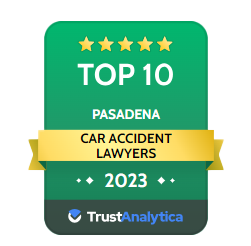Food poisoning is a common problem that affects many people every year. It arises when an individual consumes food contaminated by bacteria, viruses, or toxins that lead to sickness. In some cases, food poisoning can be severe, leading to hospitalization, long-term health problems, or even death. If you or a loved one has suffered from food poisoning, it is essential to seek legal representation from a Pasadena food poisoning lawyer.
Do You Have a Valid Food Poisoning Case?
If you have suffered from food poisoning, you may be eligible to file a lawsuit against the responsible party. However, to have a valid food poisoning case, you must prove that the other party was negligent and that their negligence caused your illness. This can be challenging, as it requires establishing a link between the contaminated food and the illness.
To determine whether you have a valid food poisoning case, you should consult with a Pasadena food poisoning lawyer. A lawyer can assess your case’s merit and help you determine whether you have a claim.
Common Causes of Food Poisoning
Food poisoning can arise from several sources, including contaminated food, water, and surfaces. Some of the most common causes of food poisoning include:
Bacteria
Bacteria are one of the primary causes of food poisoning. Some of the most common bacteria that cause food poisoning include E. coli, salmonella, listeria, shigella, campylobacter, and botulism. These bacteria can enter the food chain at various points, from farm to table.
Viruses
Viruses can also cause food poisoning, with norovirus being the most common. Norovirus is highly contagious and can spread rapidly in settings such as schools, nursing homes, and cruise ships.
Parasites
Parasites are another cause of food poisoning, with toxoplasmosis, cryptosporidiosis, and giardiasis being the most common. These parasites can enter the food chain through contaminated water, soil, and food.
Toxins
Toxins can also cause food poisoning, with some toxins being naturally occurring, such as those found in poisonous mushrooms. Others can arise from food processing, such as botulinum toxin, which can grow in improperly canned foods.
Recent Food Recalls and Outbreaks
Foodborne illness can affect a wide range of products, with some carrying higher risks than others. For instance, healthcare professionals often advise pregnant women to avoid consuming raw sprouts, sushi, and soft cheeses due to the heightened risk of food poisoning.
Below is a partial list of food recalls and outbreaks in recent years:
- In 2018, a salmonella outbreak linked to raw turkey products sickened at least 358 people across 42 states.
- In 2019, a listeria outbreak linked to hard-boiled eggs sickened at least seven people, leading to one death.
- In 2020, a cyclospora outbreak linked to bagged salads sickened at least 641 people across 11 states.
These outbreaks highlight the need for consumers to be vigilant when purchasing and consuming food products.
Understanding Foodborne Illness
Food poisoning arises when an individual consumes food contaminated by bacteria, viruses, or toxins that lead to sickness. The most prevalent types of bacteria responsible for food poisoning include E. coli, salmonella, listeria, shigella, campylobacter, and botulism.
Foodborne illness can affect anyone, but some groups are more susceptible than others. These groups include children, pregnant women, the elderly, and individuals with weakened immune systems.
Signs and Symptoms
Gastrointestinal issues are widespread when an individual suffers from food poisoning. The specific symptoms and the severity of the illness depend on the type of bacteria causing the food poisoning. However, some common symptoms include:
- Nausea
- Vomiting
- Diarrhea
- Abdominal pain
- Fever
In severe cases, food poisoning can lead to complications such as dehydration, organ failure, and sepsis.
Frequently Asked Questions (FAQs)
-
What should I do if I think I have food poisoning?
If you suspect that you have food poisoning, you should seek medical attention immediately. You should also document your symptoms and contact a Pasadena food poisoning lawyer. -
How long after eating contaminated food do symptoms appear?
Symptoms of food poisoning can appear within a few hours of consuming contaminated food or take up to several days to appear. -
What evidence do I need to prove my food poisoning case?
To prove your food poisoning case, you will need to provide evidence linking your illness to the contaminated food. This can include medical records, witness statements, and laboratory test results. -
Can I sue a restaurant for food poisoning?
Yes, if you can prove that the restaurant was negligent and that their negligence caused your illness, you can sue the restaurant for food poisoning. -
How long do I have to file a food poisoning lawsuit?
The statute of limitations for filing a food poisoning lawsuit varies by state. In Texas, you have two years from the date of the injury to file a lawsuit. -
Can I receive compensation for my medical bills and lost wages?
Yes, if you have a valid food poisoning case, you may be eligible to receive compensation for your medical bills, lost wages, and other damages. -
What if I can’t afford a Pasadena food poisoning lawyer?
Most food poisoning lawyers work on a contingency fee basis, which means that you only pay if you win your case. Additionally, many lawyers offer free consultations to discuss your case’s merit. -
Can I file a food poisoning lawsuit if I don’t know where the contaminated food came from?
Yes, if you can prove that you suffered from food poisoning and that it was caused by a specific food product, you may be able to file a lawsuit, even if you don’t know where the contaminated food came from. -
What is the difference between food poisoning and foodborne illness?
Food poisoning is a type of foodborne illness, but not all foodborne illnesses are food poisoning. Foodborne illness refers to any illness caused by consuming contaminated food or water. -
How can I prevent food poisoning?
To prevent food poisoning, you should follow proper food handling and storage procedures, avoid consuming undercooked or raw foods, and practice good hygiene.
Consult with a Pasadena Food Poisoning Lawyer for Free
If you or a loved one has suffered from food poisoning, you should consult with a Pasadena food poisoning lawyer for expert legal advice. At Joe I. Zaid & Associates, we offer free consultations to discuss your case and help you understand your legal options. Contact us today to schedule your consultation.




